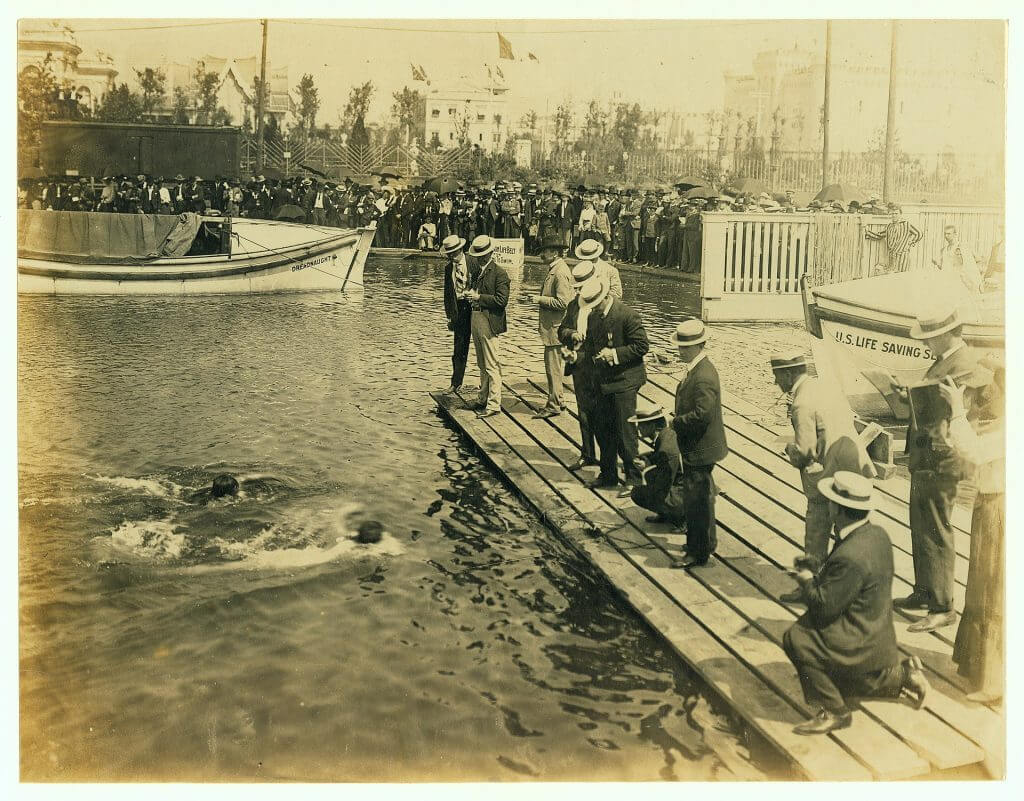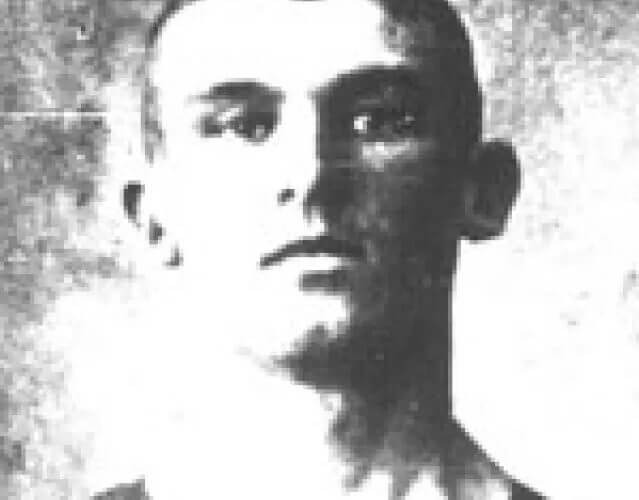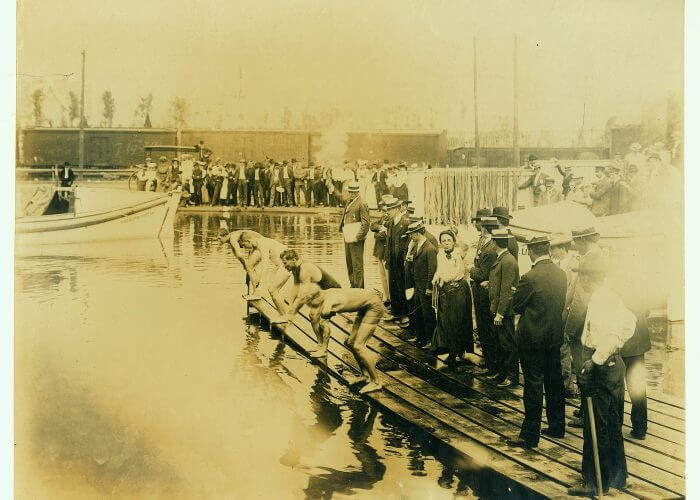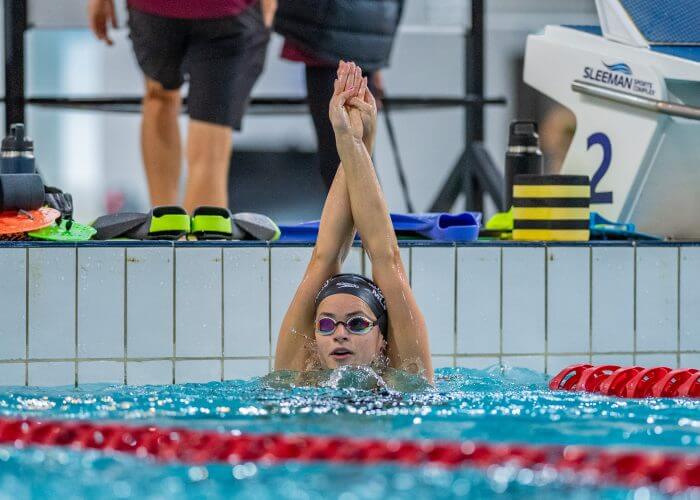Remembering Frank Gailey, the Australian Who Won Four Medals for the U.S. at the 1904 Olympics

Remembering Frank Gailey, the Australian Who Won Four Medals for the U.S. at the 1904 Olympics
Frank Gailey holds a special place in the annals of Australian and US Olympic swimming rivalry as the only Australian to swim for an American team and win four medals in St. Louis in 1904 – before the century old secret was revealed in 2009 – that Francis was in actual fact an Aussie!
The Gailey story adds a peculiar twist to the long-standing duel between swimming’s archrivals which will re-surface in Paris this weekend when nine-days of must watch swimming kicks off the 2024 Paris Olympics – and it’s sure to reach “Boiling Point” – the name given to an Australian-US inspired documentary which has gone to air twice in Australia in the lead up to these long-awaited Games.

SWAP AND GO: Francis “Frank” Gailey won four Olympic medals at the 1904 Olympics that swapped from the US to Australia. Photo Courtesy Australian Olympic Committee.
A chronicled rivalry centred around the 4x100m freestyle “Smash ‘em Like Guitars” relay boilover in 2000; and Duncan Armstrong’s 1988 controversial “surf to the gold” story in Seoul against US legend Matt Biondi.
The fuse re-lit in 2023 over who really was the top dog at the Fukuoka World’s with Cate Campbell adding further fuel with her “Not the Star-Spangled Banner again” call that infuriated the GOAT Michael Phelps.
The world’s top two swimming nations, preparing for another showdown at the Games of the XXXIII Olympiad.
But at 1904 Games in St Louis – Francis “Frank” Gailey, an Aussie, born in Brisbane was one of the stars of the Games – but because he was living in the US and represented the San Francisco Olympic Club he was claimed by US officials “as one of them” but in actual fact he was really “one of us!”
For well over a century Gailey, a swimmer from Queensland, had mistakenly been listed in official records as an American.
And 105 years after his freestyling feats in Forest Lake in St Louis, Australia revealed through its Olympic historian Harry Gordon that it had a newly discovered Olympic hero, and the nation’s tally of Olympic medals had suddenly, and quite unexpectedly, been boosted by four — three silver and one bronze.
READ THE FULL FRANK GAILEY STORY HERE

THE WAY WE WERE: St Louis Swimming Venue, Forest Lake, 1904, where Frank Gailey won four medals. Photo Courtesy Missouri Museum Collection.
Of the four events Gailey won his medals in (silvers in the 220, 440 and 880 and bronze in the mile) the 880 yards was not swum again until it surfaced at the Tokyo Games and won by American Bobby Finke – Australia’s Jack McLoughlin finishing fifth.
Finke will be joined on the US roster by rookie Luke Whitlock as he steps up to defend his 800m crown, while Australia will have highly ranked Sam Short and Elijah Winnington in the green and gold corner.
Let’s dive into some more Olympic history:
Ariarne Titmus and Mollie O’Callaghan
A slice of Olympic history awaits Australian girls Ariarne Titmus and Mollie O’Callaghan in the women’s 200m freestyle? Victory to defending champion Titmus will make the 23-year-old Tasmanian-born Queenslander the first swimmer to defend the 200m freestyle since it was first swum in Mexico in 1968. Victory to O’Callaghan will set her up for a shot at becoming only the third swimmer in history and the first in over 40 years to take out the rare 100-200m freestyle double.
While 400m freestyle world record holder and defending champion Ariarne Titmus in the 400m freestyle. Only one swimmer in Olympic history, Swedish-born American Martha Norelius has successfully defended the women’s 400m freestyle at an Olympic Games – at 15, Martha (coached by her father, Swedish Olympian father George Norelius, who also coached the legendary Johnny Weissmuller) won her first gold in Paris in 1924 when the event debuted on the program 100 years ago. Defending her title in Amsterdam in 1928.
And if Titmus can add the prestigious 400m the 200m then she becomes only the second swimmer since the 200m was added to the programming 1968 to win the 200-400m freestyle double – behind the GOAT Katie Ledecky who achieved the feat in Rio in 2016.
Four Australian women have won gold in the 100m freestyle– the first to Fanny Durack when the event was swum for the first time in Stockholm in 1912 with fellow Australian Mina Wylie winning silver as the freestyling pioneers from Down Under staged a stunning 1-2 punch in the pool.
Australia didn’t feature again until 1956 with the arrival of the remarkable Dawn Fraser for the first victory en-route to of her historic three-peat (1956-60-64) with the Australian girls winning gold silver and bronze to Fraser, Lorraine Crapp and Faith Leech in 1956 – a feat only the US had ever achieved before as the Australians dominated their home Games in Melbourne.
And it’s 20 years since Jodie Henry won her gold in Athens while Emma McKeon rocketed to her gold in 2020 as she mounted the Aussie attack in Tokyo 2020 with Cate Campbell take the bronze. Now it’s over to the new breed. Can 2023 world champion Mollie O’Callaghan or her St Peters Western teammate Shayna Jack become the fifth golden girl in this coveted blue ribbon 100m freestyle?
One-hundred years ago, Manly’s Andrew “Boy” Charlton won Australia’s first Olympic gold in the 1500 in Paris in 1924. Short will take with him a special slice of Australian Olympic history – it was the first of eight Olympic golds won by Australians in an event that has been dubbed “Australia’s Race”. Gold that followed came in1956 to Murray Rose, 1960 to John Konrads, 1964 to Bob Windle; to world record beating back-to-back golden boys Kieren Perkins 1992 and 1996 and Grant Hackett in 2000 and 2004 – the who’s who of Australia’s proud and distinguished 1500m Olympic history. Queensland heir-apparent Sam Short is waiting in the wings to follow Australia’s 1500m legends into battle in Paris.
The Paris Games also celebrates the 60th anniversary of Australian Ian O’Brien’s Olympic triumph in the 200m breaststroke at the 1964 Tokyo Olympics, at just 17-years-of age – the boy who hailed from Wellington in country NSW, improved his pb by four seconds to take the gold in a then WR time of 2:27.8. The event that Zac Stubblety-Cook won in Tokyo as he lines up to attempt his defence in Paris. It is also the 60thanniversary of Kevin Berry’s Olympic gold medal swim in the 200m butterfly in Tokyo and the 40thanniversary of Jon Sieben’s gold medal swim in the same event in Los Angeles in 1984, as Tokyo Olympian Matt Temple adds the event to his 100m title bid.
Blue Ribbon Gold in the 100m Freestyle
After gold medal swims to Jon Henricks (1956), John Devitt (1960) and Mike Wenden (1968), Australia has not missed a medal in the men’s 100m freestyle at the Olympic Games since Sydney 2000 when WR holder Michael Klim was beaten for bronze by American showman Gary Hall Jr, by one-one-hundredth of a second. There was huge controversy in Rome in 1960 with the Americans claiming their man Lance Larson “was robbed of the gold” – which ranged for decades after the event.
Over the past five Games Australians Ian Thorpe (Bronze, 2004), Eamon Sullivan (Silver, 2008), James Magnussen (Silver, 2012) and Kyle Chalmers (Gold, 2016 and Silver 2020) have all been on the podium. Gold to Chalmers would make him the first to win a second title in the blue ribband 100m with a Games silver in between – and any medal would make him the third in history behind legendary Hawaiian Duke Kahanamoku and the great Alex Popov, to win three medals.

HEAD ABOVE WATER: Kaylee McKeown prepares for a balancing act Photo Courtesy Wade Brennan (Wade’s Photos)
Kaylee v Regan In AUS-US Backstroke Rivalry
While Kaylee McKeown, the first Australian swimmer to win Olympic 100m backstroke gold in Tokyo and will be chasing another slice of history (like Titmus) trying to become one of the next Australian females after Olympic icon Dawn Fraser, in 1960, to defend an Olympic gold in the pool.
McKeown also became the first Australian to win Olympic gold in the 200m backstroke at the Tokyo Games which saw Emily Seebohm take a deserved bronze in her fourth Olympic campaign. Australia’s only other medal was a bronze won by Nicole Livingstone in Barcelona in 1992 in an event that was first swum in Mexico City in 1968.
And in both events, US arch-rival Regan Smith (who won back the 100m backstroke world record from McKeown at the US Trials) will likely be in the next lane or there abouts in what will surely be two of the great Australia-US showdowns.
The Queensland whiz kid will also make her Olympic 200IM debut which has been won twice by Australians – Shane Gould (Munich 1972) and Stephanie Rice (Beijing 2008) with Michelle Pearson winning bronze (Los Angeles ’84) – and US star, two-time world champion Kate Douglass will be the one to beat in an event first swum in Mexico in 1968 and dropped from the program for 1976 and 1980.
Brought back in ’84 and won by Tracy Caulkins (USA) now Tracy Stockwell (who married Australia’s ’84 LA Olympic silver medallist in the 100m freestyle Mark Stockwell) Tracy a former president of Swimming Australia – a Brisbane household with a foot in both camps – stars and stripes in one corner and green and gold in the other…
Let the Games begin….!



